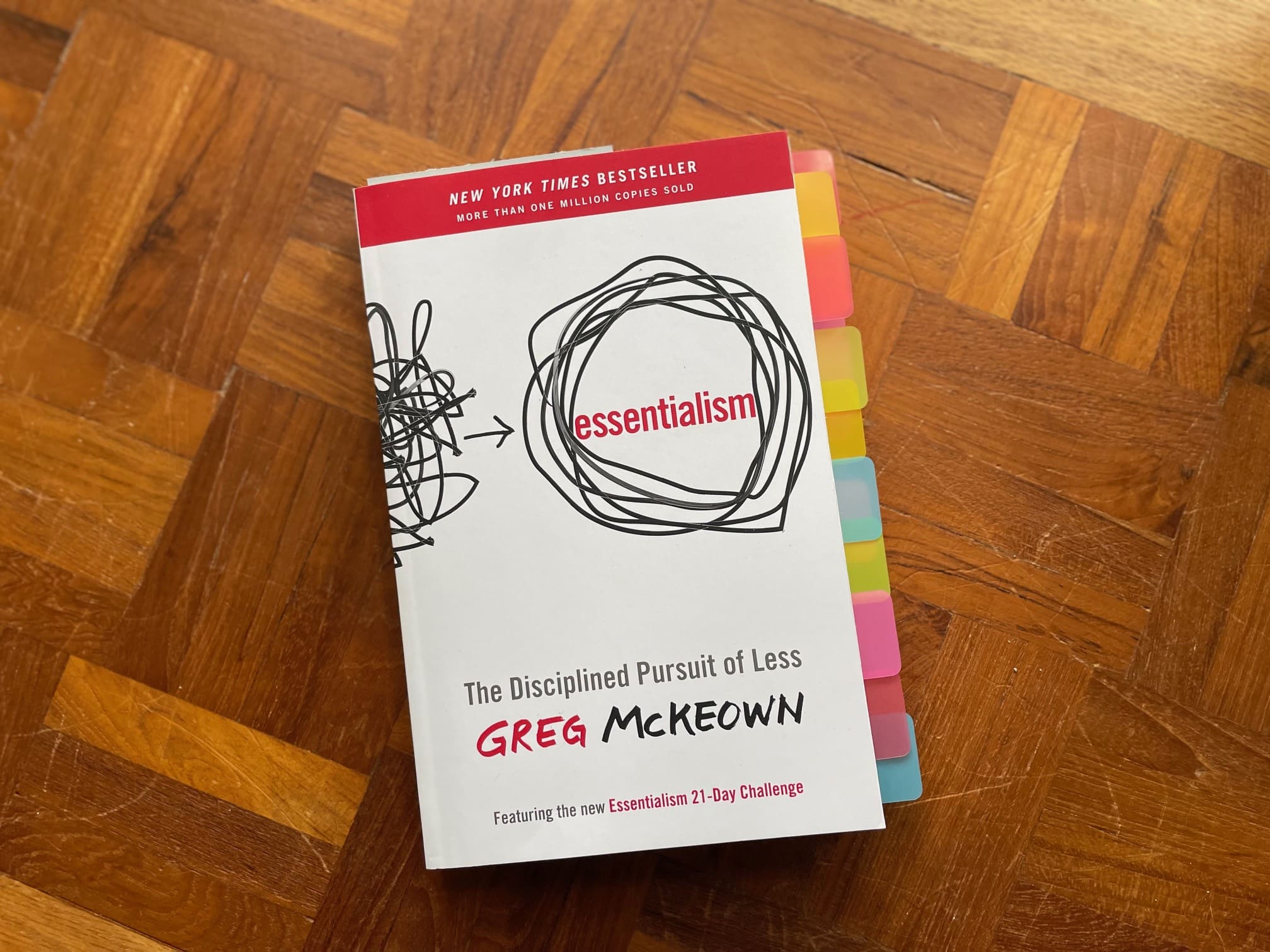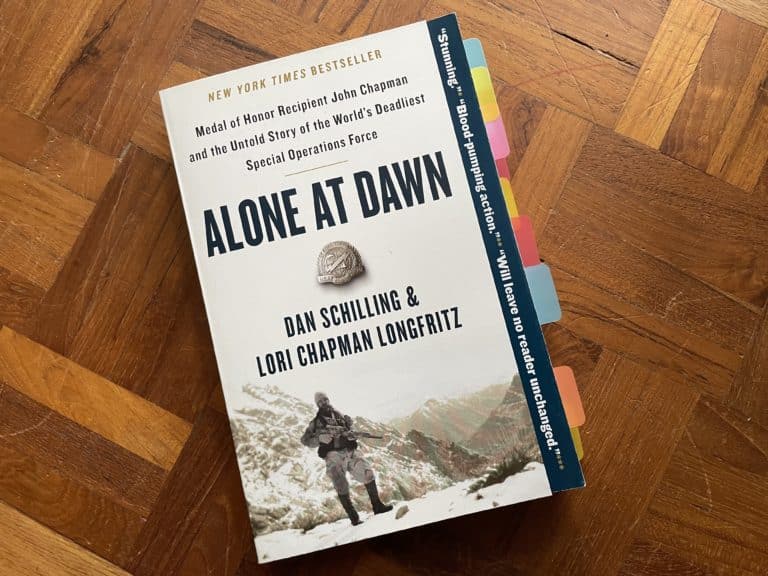This post contains affiliate links. This means that if you make a purchase through one of these links I will get a small commission at no additional cost to you. I only recommend products and services to readers that I really believe are valuable.
Essentialism: The Disciplined Pursuit of Less by Greg McKeown is a Necessary Reminder in Today’s World of Max Productivity
Essentialism is a book that has been on my radar for quite some time. Several people I follow on social media have recommended it, including Ryan Holiday, who’s book recommendations I always take seriously. The book purports to offer a way to simplify and focus our work and lives in general. Taken from the back cover-
“Essentialism isn’t about getting more done in less time. It’s about getting only the right things done. Only once we discern what is absolutely essential and eliminate everything else can we make our highest possible contribution toward the things that truly matter.”
Greg McKeown
I was excited to discover something new, so when I dove in I was surprised to find that this book’s material seemed so familiar. Essentialism‘s main premise is actually heavily influenced by Stephen Covey’s The 7 Habits of Highly Effective People, most notably Habit 1: Be Proactive and Habit 3: Put First Things First. I don’t know if this was intended by the author or not, but upon realizing this connection I was a little put off and expected not to like the book.
Happily, my initial feelings proved to be unfounded. Rather than just a simple re-hashing of Covey’s material, Essentialism acts more as an expansion and further discussion of the ideas first presented in The 7 Habits. Great as it is, The 7 Habits was originally published in 1989. Although it remains relevant today, I believe there is also room for Greg McKeown’s book, as it serves as an updated and needed reminder in today’s overwhelming hustle culture of non-stop “productivity”.
The Pros of Essentialism and Saying No
What I like about the advice given in Essentialism is that it isn’t some trite quick fix. Instead, it seeks to give the reader a foundation for determining what is actually worth devoting time and energy toward. Spoiler- not most things. If you’ve been into the self-improvement niche for a while, you’ve probably heard the phrase, “If you don’t decide what to do with your life, someone else will” or some variation of this. But how many of us continue to say yes to our boss, our friends, etc when offered yet another project, another “opportunity”, another activity?
You cannot be prepared to say “no” to that which does not serve you until you take the time to reflect upon your deepest values. Much of the book seeks to arm the reader with different ways of arriving at these values, so they can better discern in the moment what offers to consider and which they should not hesitate to turn down.
“In order to have focus, we need to escape to focus.”
Greg McKeown
I enjoyed McKeown’s references to his work with the d.school at Stanford. He talks about making space to think and how the rooms at the school are designed purposefully to encourage certain behaviors. While one room sports a lack of traditional chairs, encouraging students to get up and interact with each other, another room has only enough space for 1-3 people and is “deliberately free of distraction.” The only thing you can do there is think.
These kinds of descriptions get my mind buzzing about how to better manipulate my own environment for my own goals. The point is not that there is some ultimate way to design a work environment, just as there are not an ultimate set of values on which you should make decisions. It is necessary that each person take the time and space to determine for themselves what their priorities should be and then make decisions that are in alignment with those priorities.
Your Core Values and Practices of Lifestyle Design
McKeown spends much of the first half of the book persuading the reader that this deeper knowledge of one’s values is worth taking the time to pursue and that it is worth escaping busy work, meetings, and emails to achieve on a regular, reoccurring basis. What I like about his writing is that he approaches this idea from several different angles. If one doesn’t register with the reader, it’s likely that another will convince them.
The second half of the book offers five different practices in determining what is essential in your own work and life. These practices are making space to think, taking time to look and listen, giving permission to play, having wisdom to sleep, and employing discipline to apply highly selective criteria to the choices one makes. Throughout the chapters devoted to these practices, McKeown illustrates his ideas with anecdotes and examples that are usually highly entertaining and informative.
The Drawbacks of Essentialism
I don’t have too many negative things to say about McKeown’s work. The only thing I might offer is that, like so many books, the value in it will only really be realized if and when the reader puts it into practice. Essentialism has the potential to change the balance of one’s life for the better….or it can easily be ignored and not acted upon, forgotten in the deluge of so many self-help books.

If you’re familiar with Eisenhower’s matrix, you’ll recognize that this book pretty much lives in the 2nd quadrant, Important but Not Urgent. Except that it is urgent. With so many inputs, interactions, and information assaulting us all. the. time. it’s more important than ever to take the time and space to slow down and think of what’s really important to us. The matrix on the right in the above image is the ideal.
Final Thoughts
Essentialism: The Disciplined Pursuit of Less, is for the person that’s ready to start putting their time and energy toward things they see the value in. If the reader is open to slowing down and making time to put some of the practices mentioned in the book into action, they can reduce their stress, feel more invested in their work life, and increase time spent with family and doing the things that are most important to them.
This book is NOT for the person who immediately answers every email just because it popped into their inbox. It’s not for the person who’s first solution to every problem is to schedule a meeting. It’s not for the person who thinks sleep is for the weak, chronic stress is a sign of success, and that if they just work harder they can do it all.
Or maybe that’s exactly the kind of person who needs it most.
Rating- 4/5
⭐⭐⭐⭐






